A brief background first: The Bot framework stores the conversation data within a storage either Azure tables/Cosmos DB (Azure tables in my case). For each conversation there is an entry made into the Azure table with the timestamp, userid, conversation messages and other details.
I am trying to retrieve the conversation details from Azure table storage using custom code in C# as shown below.
Microsoft.WindowsAzure.Storage.CloudStorageAccount storageAccount = Microsoft.WindowsAzure.Storage.CloudStorageAccount.Parse(connectionString);
Microsoft.WindowsAzure.Storage.Table.CloudTableClient tableClient = storageAccount.CreateCloudTableClient();
CloudTable table = tableClient.GetTableReference("botdata");
TableQuery<DynamicTableEntity> projectionQuery = new TableQuery<DynamicTableEntity>().Where(TableQuery.GenerateFilterCondition("PartitionKey", QueryComparisons.Equal, "directline:user"));
var dataRow = table.ExecuteQuery(projectionQuery).Where(q => q.RowKey == "souvik").FirstOrDefault();
var conversation = Encoding.UTF8.GetString(dataRow.Properties["Data"].BinaryValue);
Console.WriteLine(conversation);
I am getting some gibberish text, something like this- \u001f�\b\0\0\0\0\0\u0004\0��\u0005\0C���\u0002\0\0\0 when I retrieve the data stored in Binary format in the Azure table storage. The data looks something like as shown below in the Azure storage explorer-
I have tried and tested for each conversation and I have seen that each time I type and send a data to the bot and get a response, new records are getting added to the Azure table with correct timestamp. Is it the correct way of retrieving the data or am I doing something wrong? Let me know if I can add more details.
Update-1:
I have referred this- How to retrieve Saved Conversation Data in Azure (Tablelogger) but did not get much help my issue.
Update-2
Based on Fei's answer below, I just noticed when I use the PartitionKey as directline:user or directline:conversation I get the deserialized values as {} but if I use directline:private I get somthing like this-
{"ResumptionContext":{"locale":"en-US","isTrustedServiceUrl":true},
"DialogState":"H4sIAAAAAAAEAO1a328iVRRmYGYKbTfbdZtNzLq7GM26DWS2FGi7MVUptUrcVi1VYxrSvcCFjh1mmrl3quyjb74YEx+N/hW+uzFxE/8KX9fsH6HnzAxQ7A8GhHpZoemBDs
O953znO+d+99KQFAqF/oIHPuNjNgzm8y29YlvMqnFt3YJfRzeq1E7GP6U20y1zLa2llrQlLZOM5x2DOzZdM6nDbWIk4x85ZUOvfECbu9YhhTtT5Vp6NbtMqunlDE1nFZznF+nM8bWCyaltEoNpm
3oZpvKeHqX29s6+f0MnhlVnJz7nXdkl7DAZH1kMpVIEglAYJ5VDtWaTBmXKl0TnLCLLT8LFJuO0oeUtw6AVDjMx7T1qUluvaA91xs+P5lT0hU0cW8DwRzo4CYhOESAlhv6YIMaJIrdsWjAhJ2aF
rjd3m0e06Ni2VSecJj4sfwGp2KE1alN4Gxl+ObPgbwzJEpPRKGBk/HPCkmFUoLqvA4ZM2Wf6YxrdP/aGBaR/DdpfhMVur4TUiUZjqs8i5I8iXwpxsUPLeEfkjs/ST0ydN7sGfN/CWV16T4GRFN
/FWBTMFDodkvxL8pOxz4YbZwzNNJgrYRlj7gUOMlTeIJzE3DsQ0NkcY7RRNprbEKcUkqLqDNz0NPBqiPBskgrksikgSphsdXak6kFy6YXzXAHzW1DgPoPFWWzcYoibEutLGwlcLHKD2Icyai
JZvpyV9odwH1x4tCQaask9v5t4oSXjDVaxbEMvd0bPaIv403vw8soKyVayy6kH6QxdXH3gpcTtYVfRzGFzxkbmdrRraF7CS1dbPfw6cnFuAmpvUGWbMi6blFZlOTBYO/CZ/yNYiYD4bAOcbcb
OIxefw/60n0+j9Jg6JoZD9/dD0bAvRhSk+tNxp3T32HnLNCkubFphizJG6jQHu4lj0Bv/9KJ95xC7/An2B8ZVVPYLhOtAhXIDWf4nFMpz/zBHwqZ+rf3Ws5NvXW/JqJdDfeyWth3DcMtCPNHR
0VDz/axbopJxlK3Y3Zdw0FMqJ3adcrVB+YFVjcg9t3s/nUOUi3BK7B445iHg7HhiddSLzH1/AhCH/sGKtgVbLmoXzJp13hb2JppX0NxCCt3oZ50QlUKC9LPB2fb7ENgmCAgDE/M2mjto4ti2b
7ba9quTJndxK+isB1jWojcuXJNV251K/qaHr55HuRr3vhi5lG3ja1jEtwYgMZJVxsOurpOvWN4gjLmvinrdJOjWdPvV0rQ3JG755/wz8Zxdh6BNziR8hCLRK74jeNNeSX0d50GeuzlX745BztU
3wMmvI604DmxKqrpZ19AP5lrwIOjBqa/K+o+4VIojbPcCn9D6X8gNMNM5zWSQBnSGYwVAEfzqyhhMeQrePJ4nGYbLUTc1C+o9SMQz5eJE9JsJwZrtaL+LGYxCYwLRcPk50pYSiO54gj4t3W4piY
WJ1h2azOuIDpRsL5B+PalPfu5PnwgSQVvKJFBHo5hGOaMmu3WD9mKlTb0P8fw4kRjDbeFBkxtQfSxCjr5XJ+pjoj4uQX0I0piCCxUFt54CbYkHP876tkcQ+QOim4mHlnXkXRH2sDSFZglNGsxsBs
zax2YOYur4lQrql+kYhoJr8njKisHpcLfbryJpHBlU83DUdiyLe4FnBs1SFs0ymhVUPKmW3l8Vq546khkZJVqNoO6dzkE3rdAqNbncR9LCLfyldEtsvglmxseWNc2KpznXBIxbfQuc+k66QJTET8
RxztrbXrm8F1B5nH7Fe65zOfyvIVI26KnTnAX1bXDrj//erZFi72/Qs62CfWdsm2OntrEOAtYO3BnC+pFWWmWzDmbe93wHKlE/plU3wWr+Xy896kZwz9R33UxcxL6zvBwdDQNvRBbUTdxkhMVxXRSKesU28zeNVmRMBTMAAA=="}
I have a feeling that the DialogState data in the JSON above needs to be decrypted?
For every message I type and the response I receive, there are three records inserted into the Azure table each with a different PartitionKey which are- directline:private, directline:user and directline:conversation.

